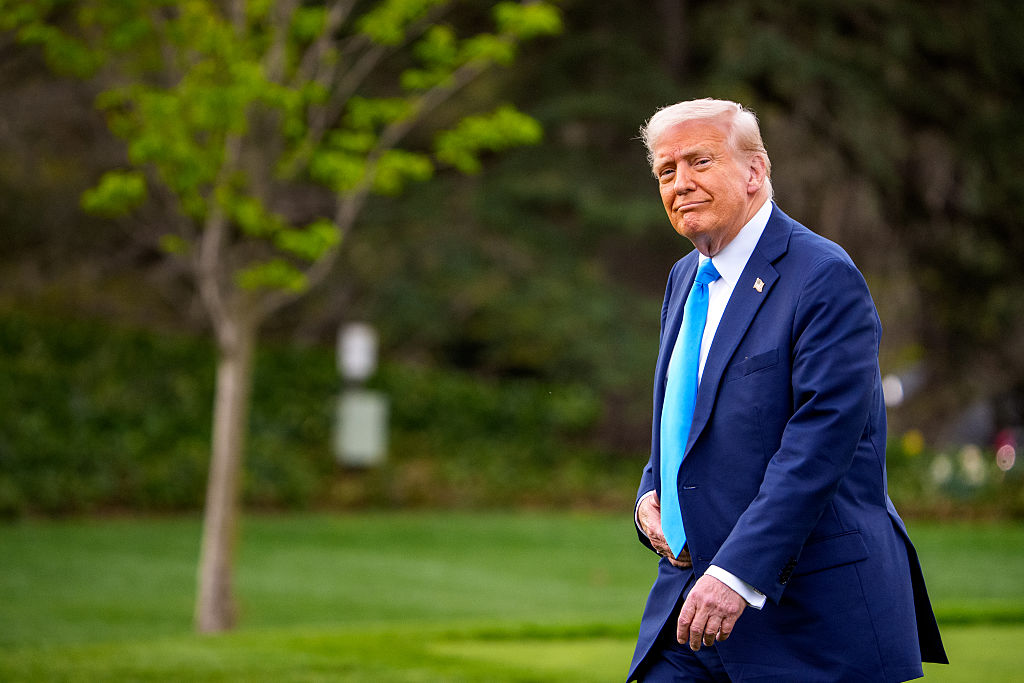It wasn’t too long ago that Donald Trump relished taking credit for moving the stock market. During his first term he routinely told supporters to check the gains on their 401Ks. The day before he took office, Trump told political supporters at a rally, “I don’t want to say this—it’s too braggadocious—but we’ll say it anyway, the Trump effect. It’s you. You’re the effect. Since the election, the stock market has surged.”
[time-brightcove not-tgx=”true”]
That’s changed. Since Trump took office, the stock market has faltered. The uncertainty around Trump’s vows to move forward with punishing tariffs on imports has rattled investors; the S&P 500 and Nasdaq just finished out their worst quarter since 2022. And new polling shows that Americans are losing faith in how Trump is handling the economy.
But Trump’s not backing down. On Wednesday, he’s expected to announce sweeping across-the-board tariffs on imported goods during a Rose Garden ceremony that he’s promoting as “Liberation Day” and the “rebirth of our country.”
While Trump has promised that his new tariffs will pressure companies to open more factories inside the U.S. and lead to better trade deals with other countries, prominent economists and researchers for banks predict the new tariffs will lead to fewer jobs, a higher unemployment rate, and a drop in the U.S. gross domestic product. In mid-March, JPMorgan Chase lowered its prediction for GDP growth because of the uncertainty around Trump’s trade policy. Real GDP growth of the U.S. economy would be 1.6% in 2025, J.P. Morgan Research predicted, down 0.3% from its previous estimates.
Part of the volatility in the stock market has been a response to the unpredictability of Trump’s stop-and-start tariff actions over the past few weeks. While announcing and then cancelling some tariffs, he has managed to impose a 25% tariff on steel and aluminum imports and a similar tariff on auto imports. Trump has telegraphed that his tariff announcement Wednesday would be broad and sweeping, with few exceptions. “You’d start with all countries,” Trump told reporters on Air Force One on Sunday.
Trump has acknowledged that Americans need to brace themselves for some economic pain. During Trump’s address to Congress in March, he said, “There will be a little disturbance. But we’re OK with that. It won’t be much.” A few days later, speaking with Maria Bartiromo on Fox News, Trump called the impact of his tariffs, “a little disruption.” “Look, what I have to do is build a strong country. You can’t really watch the stock market,” Trump said.
Karoline Leavitt on Tuesday was asked what Trump has to say to Americans who rely on their retirement accounts and have concerns about the fluctuations in the stock market. “Well, certainly they are legitimate concerns, and the president takes those concerns very seriously, and he’s addressing them every single day,” Leavitt said.
Recent polling has shown that an increasing number of Americans are worried about the impact Trump’s actions are having on the U.S. economy. A Fox News poll conducted in mid-March found that 53% of voters thought tariffs harm the U.S. economy and 28% believed they help. The poll also found 69% of voters think tariffs make products more expensive, a view shared by mainstream economists. An AP-NORC pool conducted at the end of March found that 60% of US adults disapprove of Trump’s handling of trade negotiations.
As Trump’s rolled out his economic plans, fewer and fewer Americans think his ideas will help them financially, according to a CBS News/YouGov poll. At the end of March, that poll found that 23% of Americans thought Trump’s policies would make them financially better off, a drop from 42% in January.
The next several months will be a test for Trump’s theory that increasing tariffs will ultimately strengthen the American economy. “There is substantial disagreement about the effect of tariffs between most economists and some key people in the White House,” says Whit Ayres, a long-time Republican strategist and pollster. “We’re gonna end up finding out who’s right.”

